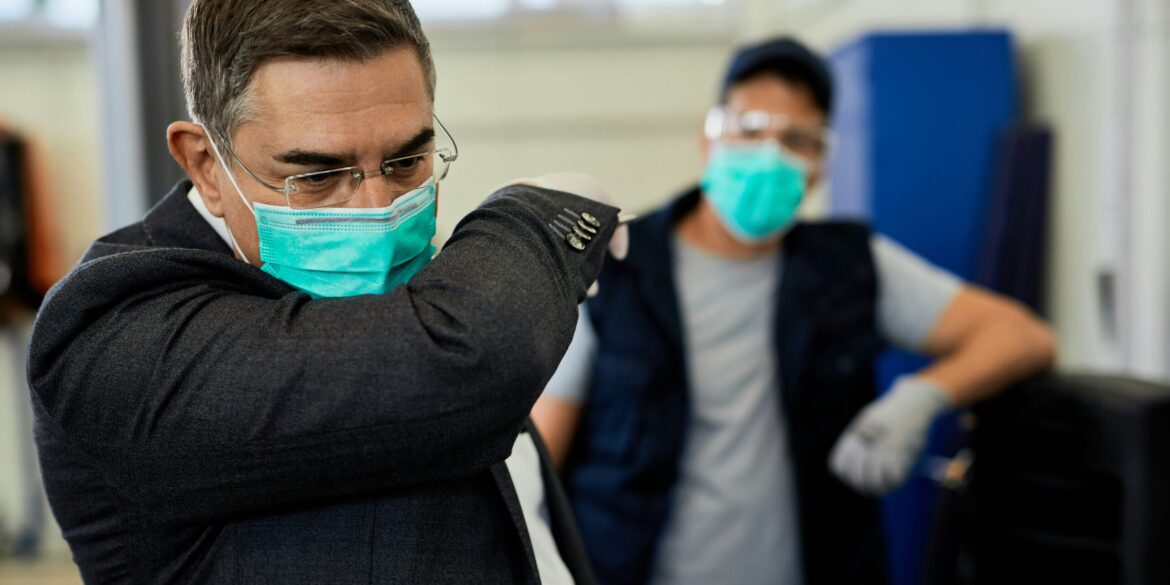Health officials in the Washington, D.C. area have issued an urgent public health warning following the confirmation of a measles case involving an international traveler who arrived at Dulles International Airport on June 8, 2025. The individual, who was contagious at the time, moved through key areas of the airport, including Concourse A and baggage claim, between 10:30 a.m. and 1 p.m. The exposure extended beyond the airport, as the traveler later used the Metro’s Silver and Red Lines, making stops at prominent locations such as the Russian School of Mathematics in Chevy Chase, Maryland, and the MedStar Health pediatrics office in Tenleytown, D.C., on June 12.
The health departments of Washington, D.C., Virginia, and Maryland have initiated an extensive effort to identify and alert individuals who may have been exposed to the virus, including passengers on the traveler’s flight. Measles, a highly contagious viral infection, spreads rapidly through the air via respiratory droplets when an infected person coughs or sneezes. Public health officials are focusing on those who might have been in these locations at the same time as the infected traveler, emphasizing the importance of early detection and prompt medical response.
The measles outbreak is part of a broader resurgence of the virus across the U.S., with over 1,000 confirmed cases reported nationwide in the first four months of 2025. This marks a concerning trend, as measles had been nearly eliminated in the country before the recent uptick in cases. The D.C. area has seen several reported cases, raising alarms among local health officials, who are keen to prevent further spread of the virus.
Measles symptoms typically appear about 10 to 14 days after exposure and include a distinctive red rash, watery eyes, runny nose, and a persistent cough. Infected individuals are contagious for several days before and after the rash appears, which contributes to the ease with which the virus spreads. Because measles can lead to severe complications, including pneumonia, encephalitis (swelling of the brain), and even death, the potential exposure has prompted a quick and coordinated response from regional health authorities.
The most effective way to prevent measles is vaccination. Health officials are urging anyone who may have been exposed to the infected individual and is not immune to seek medical advice. Those who are immune—either through two doses of the measles, mumps, and rubella (MMR) vaccine or by being born before 1957—are considered protected. However, the growing number of cases, particularly in areas like the D.C. region, underscores the importance of widespread vaccination to maintain community immunity.
Public health experts have expressed concern over the resurgence of measles due to declining vaccination rates in some communities. While the MMR vaccine has proven to be highly effective in preventing measles, the virus continues to find susceptible populations, particularly among unvaccinated individuals. This outbreak serves as a stark reminder of the importance of maintaining high vaccination coverage to prevent the spread of contagious diseases.
Health officials are working swiftly to track down anyone who may have been exposed to the measles virus in the wake of this recent incident. They have also issued guidance to those who may have been in the affected locations, advising them to monitor for symptoms and contact their healthcare provider immediately if they suspect they have contracted measles. Those who may have been exposed to the virus are encouraged to avoid public spaces until they have been evaluated by a healthcare professional to prevent further transmission.
In addition to the direct health implications, the measles exposure at Dulles Airport highlights the interconnectedness of public health risks in today’s globalized world. International travel, particularly through major airports like Dulles, can quickly turn a local health concern into a regional or even national issue. The virus’s ability to spread through crowded public spaces, such as airports and public transportation systems, underscores the need for heightened vigilance in managing infectious disease risks.
Local health departments are continuing to monitor the situation closely and are working to identify any additional cases that might arise from the exposure. As the situation unfolds, officials are urging residents to remain vigilant and to stay informed about the steps they can take to protect themselves and their families from measles and other contagious diseases.

